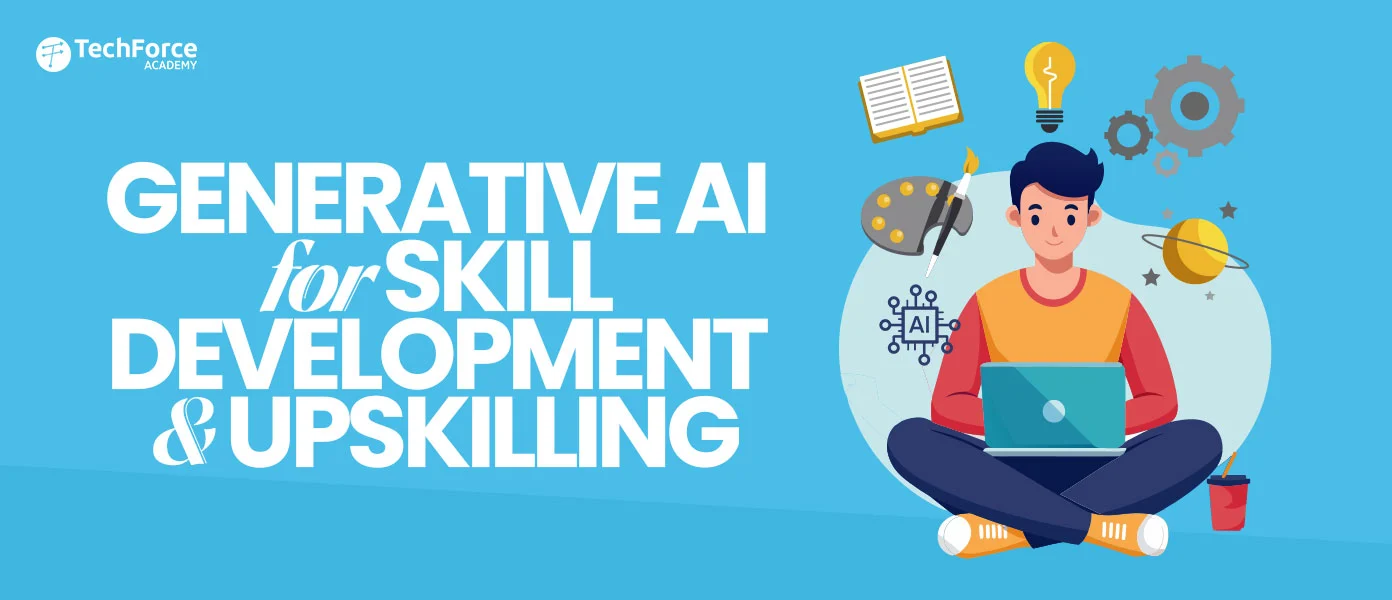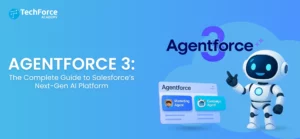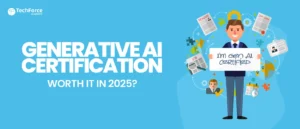Learning new technologies is necessary but staying competitive in today’s corporate landscape requires continuous skill development and upskilling. Generative AI (GenAI) is rapidly emerging and professionals in learning and development (L&D) now view these challenges differently.
With its ability to automate labor-intensive operations, personalize learning outcomes, and anticipate future skill requirements, generative artificial intelligence (GenAI) is transforming workforce training and upskilling.
The Basics of Generative AI
Generative AI refers to artificial intelligence systems capable of generating new content, ideas, or solutions. These are based on the data they have been trained on. Traditional AI predicts based on existing data, whereas GenAI creates something new.
GenAI is a powerful tool for upskilling because it can easily understand and handle massive information. It can identify the skills that employees need to develop and predict future skill demands. It can even design targeted training programs to meet these needs.
The Need for Skill Development and Upskilling
Industry transformation driven by automation and AI is driving a sharp increase in the need for new skills. Proficiency with new technologies such as artificial intelligence (AI), machine learning, and data science is becoming more and more important for jobs that formerly just required basic technical skills. The World Economic Forum projects that by 2025, retraining will be required for 50% of all employment to keep up with technological advances.
The widening skills gap is a major challenge to businesses. Businesses risk falling behind and being unable to adjust to changing market conditions or seize new opportunities if they do not have proactive upskilling strategies.
Leveraging Generative AI for Identifying Skill Development Needs
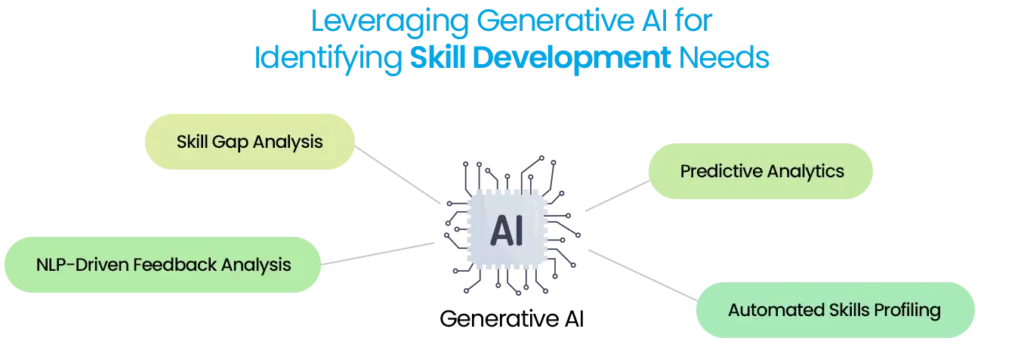
One of the most powerful applications of GenAI in the learning and development (L&D) space is its ability to identify skill gaps with precision. Traditional methods of assessing employee skills involve manual evaluations or outdated assessment tools, which can be time-consuming and prone to bias.
GenAI, however, can analyze vast amounts of employee data—such as performance reviews, training histories, and even real-time feedback—to identify where skills for learning and development are lacking.
Skill Gap Analysis
GenAI can automate the process of skill gap analysis by comparing employees’ current skills with those required for their roles or future job functions. With this, L&D specialists can create focused workforce training plans that successfully close these gaps.
Predictive Analytics
GenAI can predict future skill needs by analyzing industry trends and technological advancements. For example, if a particular technology is gaining traction in the industry, GenAI can identify the specific skills employees will need to master this technology and recommend training programs accordingly.
NLP-Driven Feedback Analysis
By leveraging natural language processing (NLP), GenAI can analyze qualitative data such as employee feedback and surveys to gain deeper insights into skill development needs. This holistic approach ensures that skills for learning and development programs are data-driven and aligned with employee experiences and expectations.
Automated Skills Profiling
GenAI can also create detailed skills profiles that show each employee’s strengths, weaknesses, and potential growth areas. The ability to create personalized learning experiences that cater to the requirements of each learner makes skill enhancement more successful and efficient.
Leveraging Generative AI for Enhancing Learning Experiences

Personalized Learning Content
GenAI can analyze employee data to create personalized learning paths tailored to each individual’s unique needs and preferences. For instance, if an employee prefers visual learning, the AI can generate video-based tutorials that cater to this preference. This kind of personalization not only enhances engagement but also improves knowledge retention and application.
Dynamic Content Generation
Keeping learning content up-to-date in industries where information changes rapidly, such as technology or healthcare, is a constant challenge. The development of dynamic learning resources, like case studies, interactive exercises, and simulations, may be automated by GenAI, guaranteeing that employees always have access to the most recent knowledge.
AI-Powered Virtual Mentors
Imagine having a virtual mentor who can provide real-time feedback, answer questions, and guide employees through complex learning modules. GenAI-powered conversational interfaces make this a reality, offering a personalized, interactive learning experience that can adapt to each learner’s pace and style.
Immersive VR/AR Training Experiences
GenAI can also create immersive training environments using virtual reality (VR) and augmented reality (AR). These technologies allow employees to practice skills in lifelike scenarios, such as a virtual factory or a simulated emergency. By providing a safe, controlled environment for hands-on learning, GenAI-powered VR/AR experiences boost confidence and competence in real-world applications.
Strategic Implementation of Generative AI for Upskilling
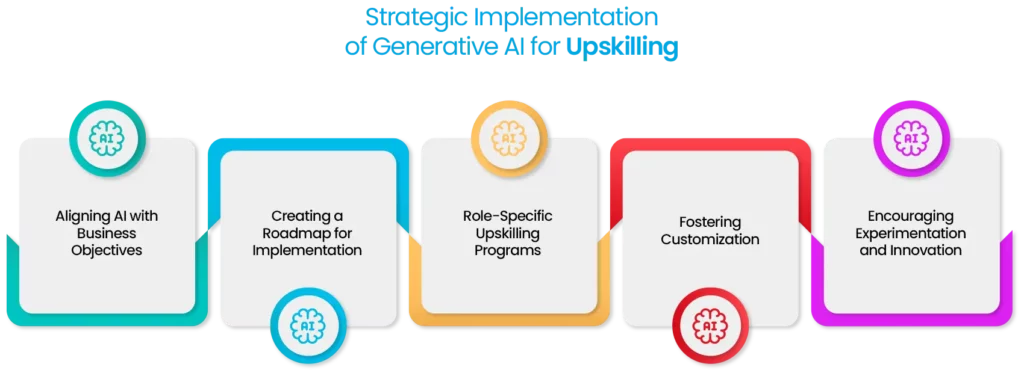
Aligning AI with Business Objectives
The first step in developing a GenAI-powered upskilling strategy is to ensure that AI tools are aligned with the organization’s broader goals. For example, if a business wishes to expand into new markets, it might prioritize upskilling in areas like cross-cultural communication, international marketing, or foreign languages.
By integrating AI in businesses to accomplish corporate objectives, businesses may guarantee the efficacy and focus of their upskilling initiatives.
Creating a Roadmap for Implementation
Once goals have been established, the next step is to create a roadmap for implementing GenAI tools. This involves selecting the right AI platforms, integrating them with existing systems, and providing training for L&D professionals on how to use these tools effectively.
A clear roadmap guarantees a seamless implementation procedure and prompt realization of GenAI benefits for the enterprise.
Role-Specific Upskilling Programs
By tailoring learning pathways to the specific needs of each role, organizations can ensure that employees acquire the skills that are most relevant to their work. For example, a sales team might benefit from training in advanced negotiation techniques, while a tech team might require upskilling in the latest programming languages or cybersecurity protocols.
Fostering Customization
By using GenAI organizations can create personalized learning experiences that cater to individual preferences, learning styles, and career goals. This level of personalization guarantees that employees are learning the skills necessary to excel in their current positions and beyond.
Encouraging Experimentation and Innovation
GenAI provides employees with the resources and tools they need to try out new ideas and take charge of their learning processes. By creating an innovative and curious culture, organizations can enable their workforce to keep up with industry advancements and skill gaps.
Case Studies and Best Practices
The implementation of GenAI in upskilling has already shown remarkable results across various industries. Let’s explore some real-world examples and best practices that highlight the potential of GenAI in revolutionizing skills development.
Tech Industry
In the technology sector, companies such as IBM, have used GenAI to train their employees in cloud computing, AI, and machine learning. IBM’s AI-powered learning platform used it to tailor employees’ learning paths according to their present skill sets, job positions, and future career goals. Employees’ time to learn new abilities has been greatly shortened by this strategy, which has also enhanced overall job performance.
Corporate Training Programs
Large corporations like Amazon have integrated GenAI into their corporate training programs to streamline the upskilling process. Amazon’s Career Choice program, which provides employees with training in high-demand fields, uses GenAI to tailor learning experiences to each employee’s interests and career goals.
The program has been highly successful, with thousands of employees transitioning into new roles within the company or moving on to other career opportunities.
Challenges and Considerations
While the benefits of GenAI in skills development are clear, there are also challenges and considerations that organizations must address to ensure successful implementation.
Ethical Implications
Organizations must ensure that their AI systems are trained on diverse and representative datasets to avoid reinforcing existing biases. Additionally, transparency in how AI decisions are made is essential to build trust among employees.
Ensuring Fairness
Employers need to monitor and audit their AI systems. With this, they should ensure that all employees have access to the same high-quality learning resources and that the AI is not hurting some groups.
Overcoming Resistance
It’s possible that you may run across resistance from employees when implementing GenAI in the workplace. These workers can be distrustful of new technology or worried about how it will affect their jobs.
To overcome this, organizations should highlight the benefits of GenAI for both professional and personal development, along with effective communication. Providing support and training on how to use AI tools effectively can also help ease the transition.
Building a Supportive Learning Culture
If you want a truly effective GenAI system then make sure that it must be integrated into a supportive learning culture that values continuous development. This involves appreciating accomplishments, encouraging employees to seize new learning opportunities, and giving them the tools they need to overcome obstacles.
By exhibiting a dedication to upskilling at all organizational levels, leadership plays a crucial part in establishing the tone for this culture.
Conclusion
Generative AI is a powerful tool that can revolutionize the development of skills and upskilling in today’s dynamic workforce. By offering personalized learning experiences, identifying skill gaps, and fostering a culture of continuous improvement, GenAI empowers organizations to stay competitive in an ever-changing business landscape.
However, to truly profit from GenAI, businesses must use it strategically, addressing ethical issues and making sure that all staff members have access to excellent learning opportunities.
As time goes on, companies looking to prepare their staff for the future will find that adding GenAI to their skills development programs is becoming more and more important. Businesses can seize new chances for expansion and innovation by adopting this technology, propelling long-term prosperity in the digital era.
If you’re ready to know how GenAI can revolutionize your company’s upskilling and skill development strategy, it’s time to take the next step. Contact us and speak with our professionals to learn how you can use generative AI to create a workforce that is prepared for the future.

